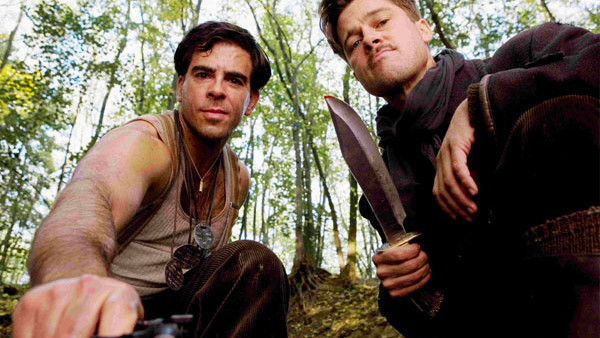10 Movies That Ingeniously Subverted Expectations
From Alien to Blade Runner 2049, these films expertly stray from the beaten path.

The overwhelming majority of movies don't offer much in the way of surprises, because why mess with what works, right?
Studies have proven time and time again that general audiences actually find genre formula comforting in its familiarity, and often reject films that dare to challenge the status quo.
But sufficiently creative and daring filmmakers have attempted to rip up the rulebook and subvert expectations of the type of movie they're making.
While such efforts often end up falling flat, and a certain subset of audiences are always going to struggle with films that do something different, these ten films all flipped the script in frankly brilliant ways.
From unexpectedly deviating from historical truth to ditching moldy genre tropes, killing off characters out of nowhere, and even denying the audience the violent catharsis they think they need, these films left audiences surprised and perhaps even a little bemused.
This isn't to say that defying cinematic conventions is inherently a good thing - in fact, when done for its own sake it can often be quite terrible - but when talented filmmakers tinker with established movie rules in inspired ways, the results can be truly incredible...
10. Inglourious Basterds

We watch most historical movies with the assumption that the filmmakers have accepted a certain responsibility to depict an "honest" version of events as they happened.
And while many directors have fudged the facts either for the sake of a more entertaining story or to suit their own political agenda, Quentin Tarantino's Inglourious Basterds tinkered with history for the sake our collective catharsis.
While it was reasonable to assume that a Tarantino-directed World War II movie was never going to be strictly married to The Facts, even so, his homage to classic men-on-a-mission movies of yore made one extremely bold decision in its finale.
If most viewers assumed the film would end with the Basterds' plan to kill Hitler (Martin Wuttke) failing in spectacularly ultra-violent fashion, Q.T. opted instead to offer a window into the alternate history many wish actually happened.
The Basterds and Shosanna's (Mélanie Laurent) plan to burn down her cinema with the German High Command sealed inside is successfully pulled off, but because that's a little too subtle for Tarantino, he also has the Führer and Joseph Goebbels (Sylvester Groth) get machine-gunned to pieces by Ulmer (Omar Doom) and Donowitz (Eli Roth).
Though some cried foul at Tarantino's historic revisionism, it was nothing if not a thoroughly tongue-in-cheek flipping of the bird to reality, where Hitler ultimately escaped anything close to true justice.
In somewhat more predictable fashion, Tarantino pulled the revisionism card out again for his most recent film, Once Upon a Time in Hollywood, rewriting the fate of murder victim Sharon Tate (Margot Robbie) by having her would-be attackers get dispatched before they even met her - in hilariously brutal fashion no less.